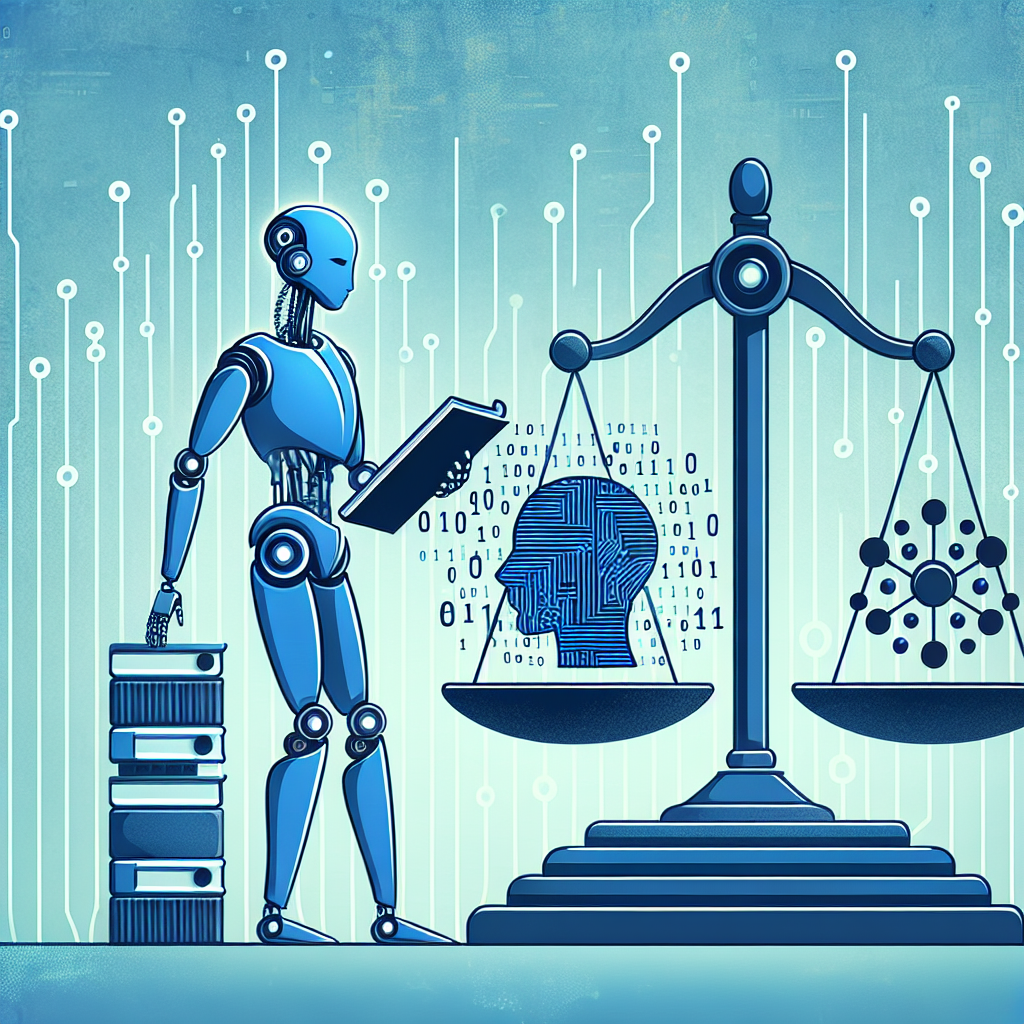Artificial intelligence (AI) has made significant advancements in recent years, with applications ranging from healthcare to finance to transportation. One area where AI is increasingly being utilized is in predicting legal outcomes. By analyzing large amounts of data and identifying patterns, AI systems can help lawyers and judges make more informed decisions about the likely outcome of a legal case.
Predicting legal outcomes with AI involves using machine learning algorithms to process vast amounts of legal data, including case law, statutes, and court decisions. These algorithms can identify trends, correlations, and other patterns that may not be immediately apparent to human analysts. By analyzing this data, AI systems can provide predictions about the likely outcome of a case, including the probability of success or failure, the potential damages or penalties involved, and the most effective legal strategies to pursue.
There are several ways in which AI is being used to predict legal outcomes. One common approach is to use natural language processing algorithms to analyze the text of legal documents and identify key information, such as the parties involved, the legal issues at stake, and the arguments presented. By comparing this information to a database of similar cases, AI systems can generate predictions about the likely outcome of a case.
Another approach is to use predictive analytics algorithms to analyze the characteristics of past cases and identify factors that are associated with successful outcomes. By examining variables such as the type of legal issue, the jurisdiction in which the case was heard, and the rulings of the presiding judge, AI systems can generate predictions about the likely outcome of similar cases in the future.
AI systems can also be used to predict the behavior of individual judges or lawyers. By analyzing the past decisions and arguments of a particular judge or lawyer, AI systems can generate predictions about how they are likely to rule or argue in a given case. This information can be invaluable for lawyers seeking to tailor their legal strategies to the preferences and tendencies of a particular judge or opposing counsel.
Overall, the use of AI in predicting legal outcomes has the potential to revolutionize the practice of law. By providing lawyers and judges with more accurate and comprehensive information about the likely outcome of a case, AI systems can help to improve the efficiency and effectiveness of the legal system. For lawyers, AI can help to identify potential risks and opportunities in a case, allowing them to make more informed decisions about how to proceed. For judges, AI can help to ensure that decisions are based on a more thorough and objective analysis of the relevant legal factors.
However, the use of AI in predicting legal outcomes also raises a number of important ethical and legal considerations. For example, there are concerns about bias and discrimination in AI systems, as they may inadvertently reflect and perpetuate existing biases in the legal system. There are also concerns about the transparency and accountability of AI systems, as their complex algorithms may be difficult to understand and challenge.
To address these concerns, it is important for lawyers and judges to be aware of the limitations of AI systems and to use them as a tool to supplement, rather than replace, human judgment. AI systems should be used to assist in decision-making, rather than to make decisions on behalf of humans. It is also important for AI systems to be transparent and accountable, with clear explanations of how predictions are generated and the ability to challenge or appeal their conclusions.
In conclusion, the use of AI in predicting legal outcomes has the potential to transform the practice of law, providing lawyers and judges with valuable insights and information about the likely outcome of a case. By leveraging the power of machine learning and predictive analytics, AI systems can help to improve the efficiency and effectiveness of the legal system, while also raising important ethical and legal considerations that must be carefully considered and addressed.
FAQs:
Q: How accurate are AI predictions of legal outcomes?
A: The accuracy of AI predictions of legal outcomes can vary depending on the quality of the data and algorithms used. While AI systems can provide valuable insights and information about the likely outcome of a case, they are not infallible and should be used as a tool to supplement, rather than replace, human judgment.
Q: What are the ethical considerations of using AI in predicting legal outcomes?
A: There are a number of ethical considerations to take into account when using AI in predicting legal outcomes, including concerns about bias, discrimination, transparency, and accountability. It is important for lawyers and judges to be aware of these considerations and to use AI systems responsibly and ethically.
Q: How can lawyers and judges use AI to predict legal outcomes?
A: Lawyers and judges can use AI to predict legal outcomes by leveraging machine learning algorithms to analyze large amounts of legal data and identify patterns and trends that may not be immediately apparent to human analysts. By using AI systems in conjunction with their own expertise and judgment, lawyers and judges can make more informed decisions about the likely outcome of a case.

